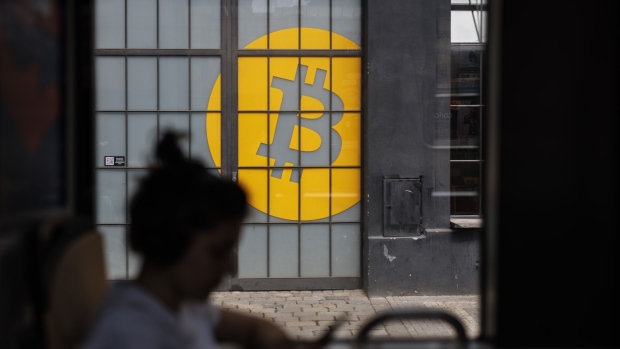Jul 19, 2022
Morgan Stanley Says Buy Salvadoran Bonds Battered by Bitcoin Bet
, Bloomberg News

(Bloomberg) -- Morgan Stanley is ready to scoop up battered bonds from El Salvador, which are some of the worst-performing notes this year as the president’s bet on Bitcoin backfires.
The government’s $7.7 billion in eurobonds have been “overly punished” by the market despite El Salvador having better metrics than other distressed peers, Simon Waever, the global head of emerging-market sovereign credit strategy at the bank, wrote in a note Tuesday.
The country’s 2027 bond has slumped 32 cents on the dollar to 28 cents this year, touching a record low of 26.3 cents on Friday.
“Markets are clearly pricing in a high probability of the autarky scenario in which El Salvador defaults, but there is no restructuring,” he wrote.
Waever estimates the debt should trade on average at 43.7 cents on the dollar, even if the country is heading for default, though he recognizes it is unlikely to reach that level soon as global liquidity tightens. The calculations don’t include an $800 million dollar coming due in January of 2023, which trades much higher at 65 cents on the dollar.
The country could muddle through without missing payments for at least another year, Waever wrote. It runs a primary surplus and has smaller maturities coming due than other distressed peers like Argentina, Egypt and Ukraine.
Emergency Curbs Protests as Sri Lanka Awaits New President
The market pessimism toward El Salvador has often been attributed to President Nayib Bukele’s unpredictable policies -- from firing some of the country’s top judges to making Bitcoin legal tender and announcing a failed dollar-bond sale linked to the token.
Since peaking in November, the price of Bitcoin has lost nearly a third of its value, prompting losses of about 48% with Bukele’s Bitcoin gamble that started in September. The nation currently holds about $56 million in Bitcoin, according to data compiled by Bloomberg.
El Salvador’s Big Bitcoin Gamble Backfires to Deepen Debt Woes
Those policies have also weighed on talks with the International Monetary Fund.
“For a restructuring to work, it nearly always needs the IMF involved and or there to be a clear push for reform by the government,” Waever wrote. “Given this may not be the set-up in a potential restructuring, it could easily end up being a protracted negotiation.”
©2022 Bloomberg L.P.





